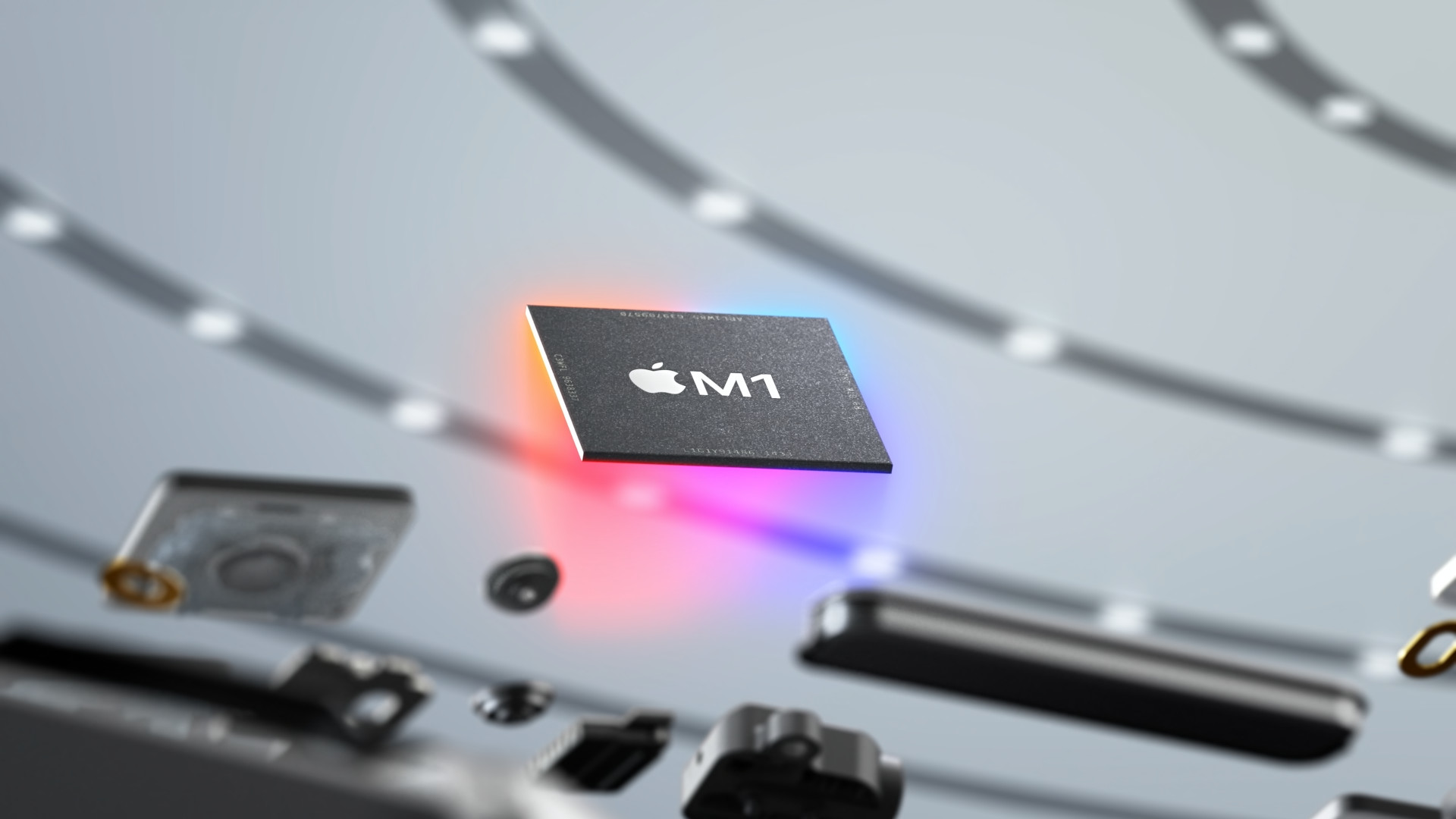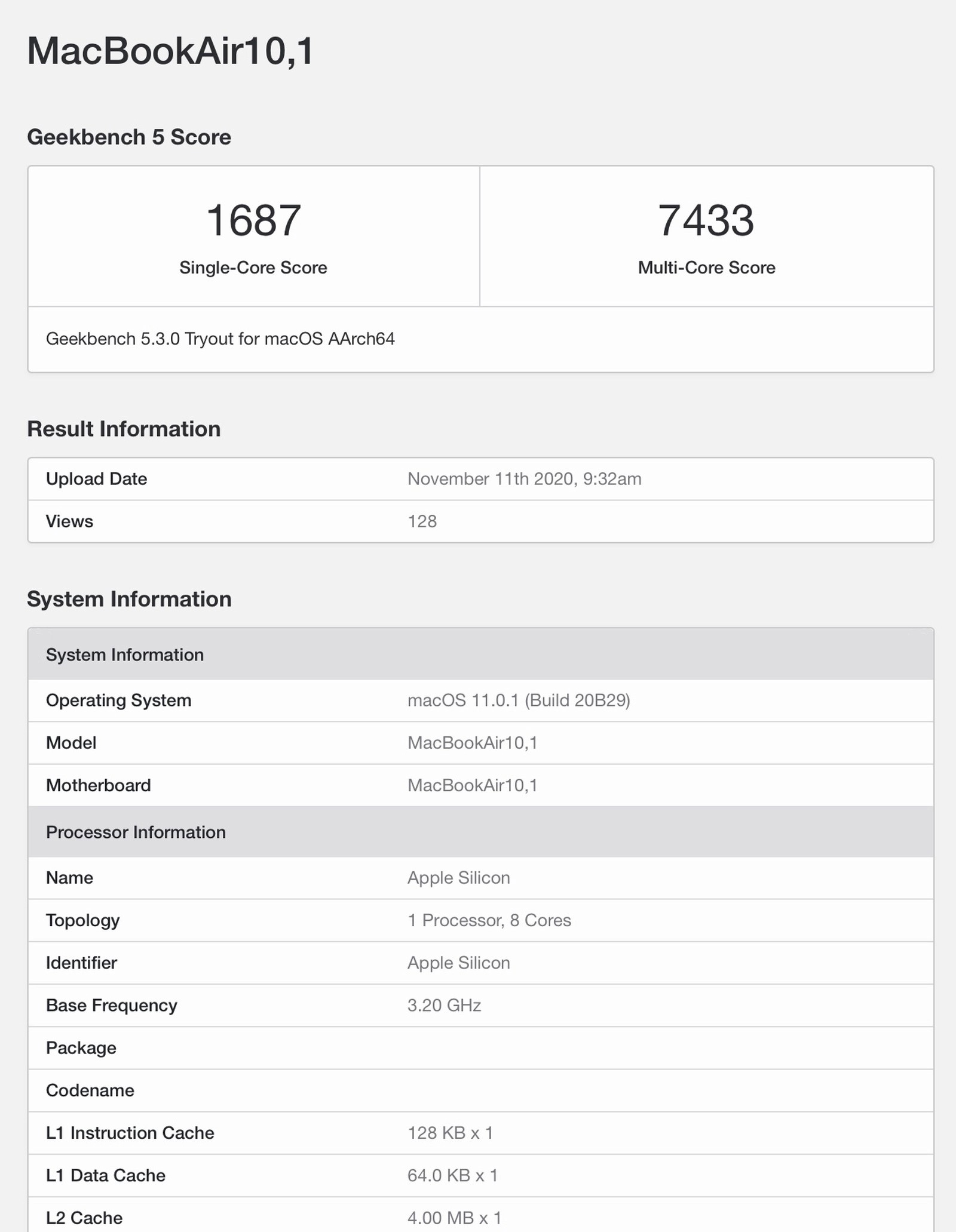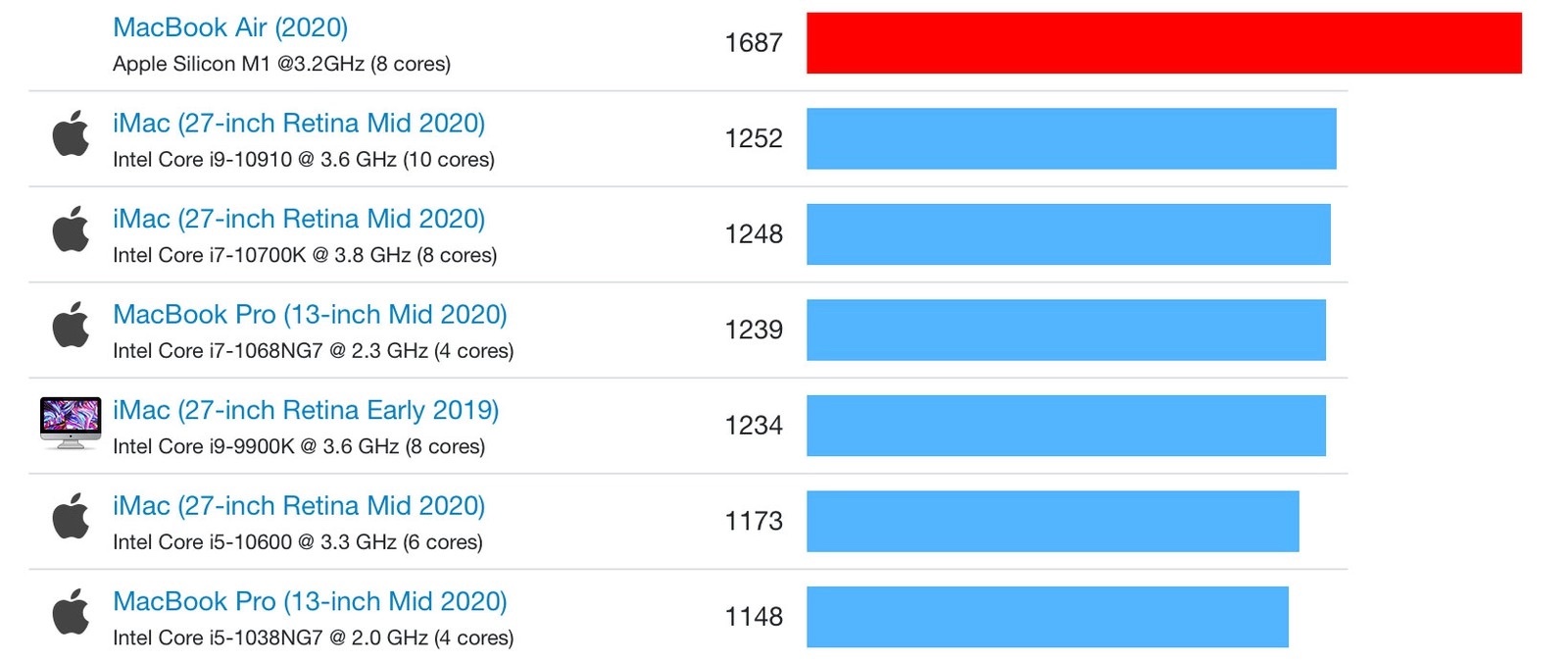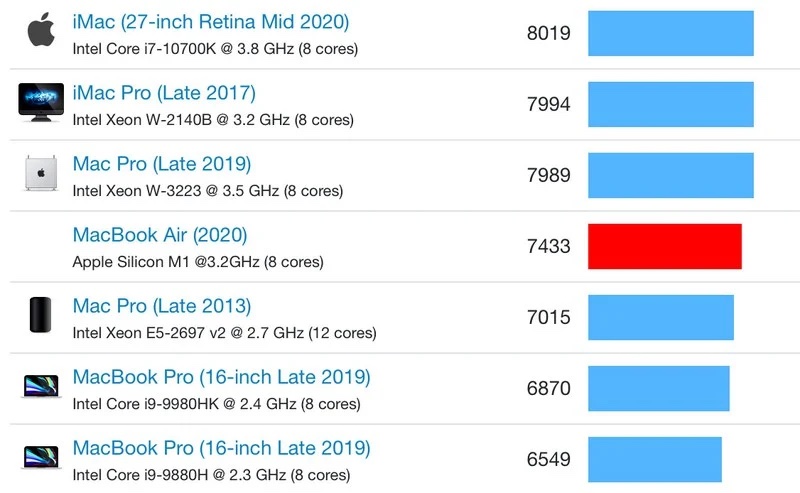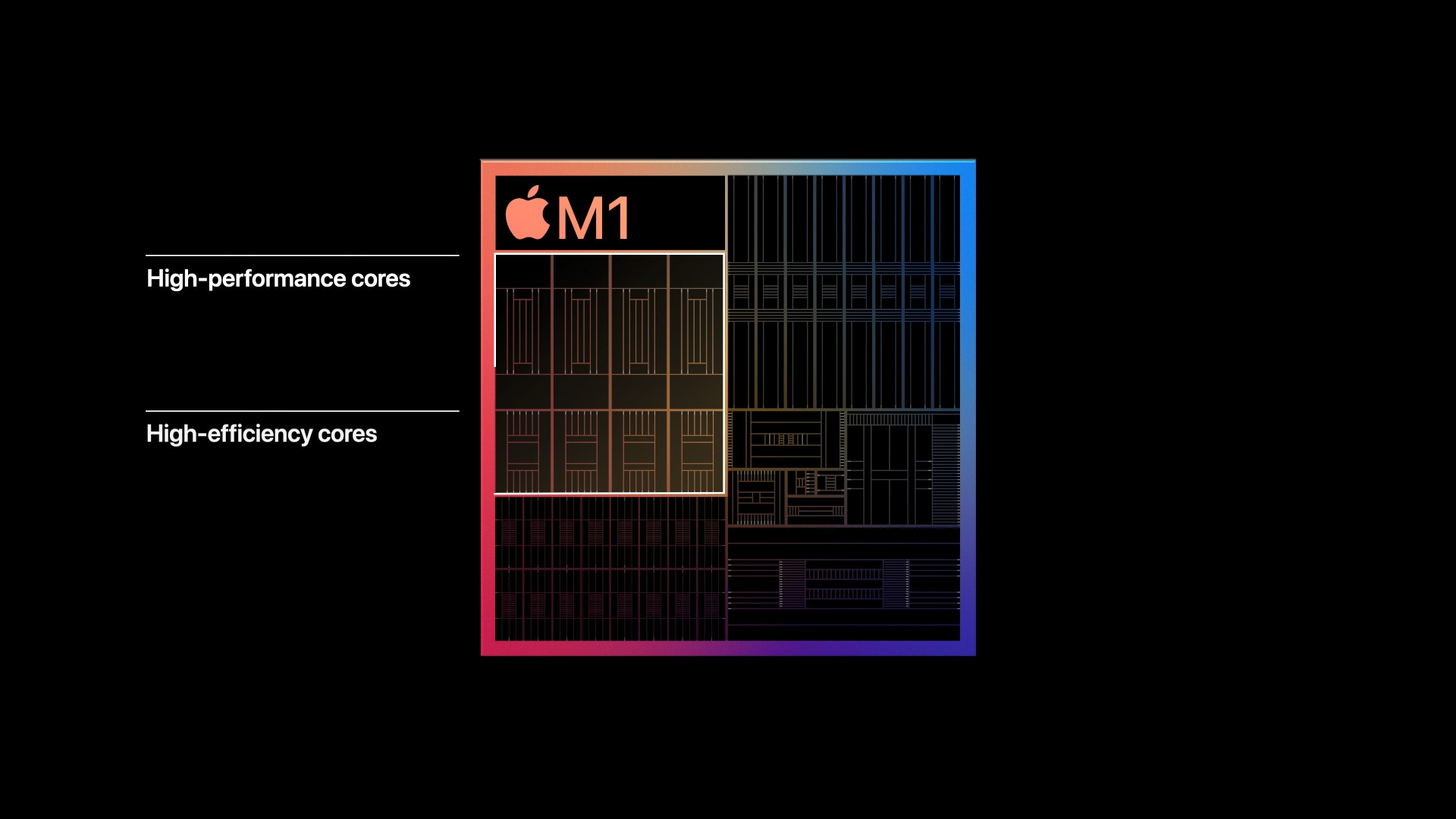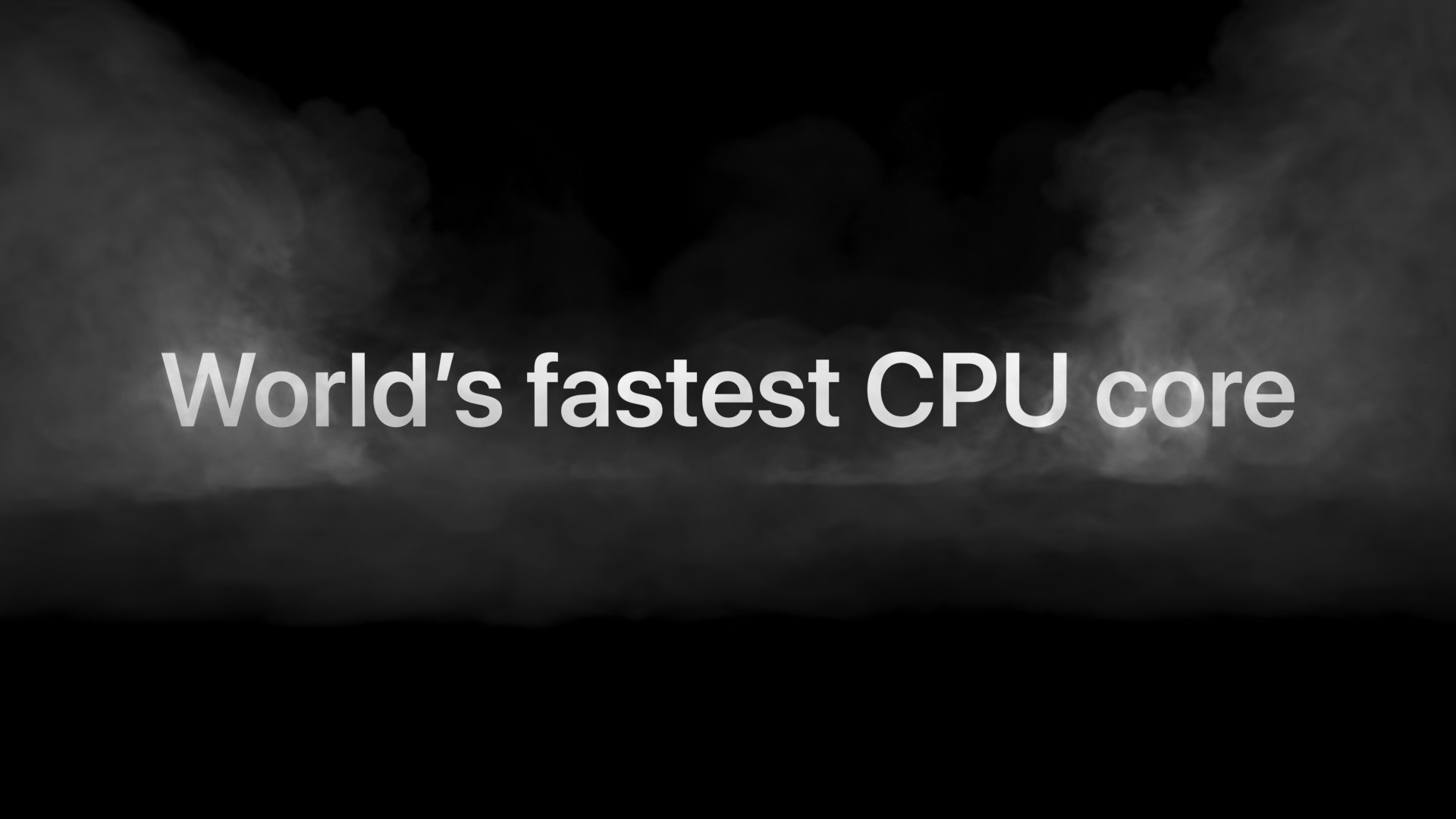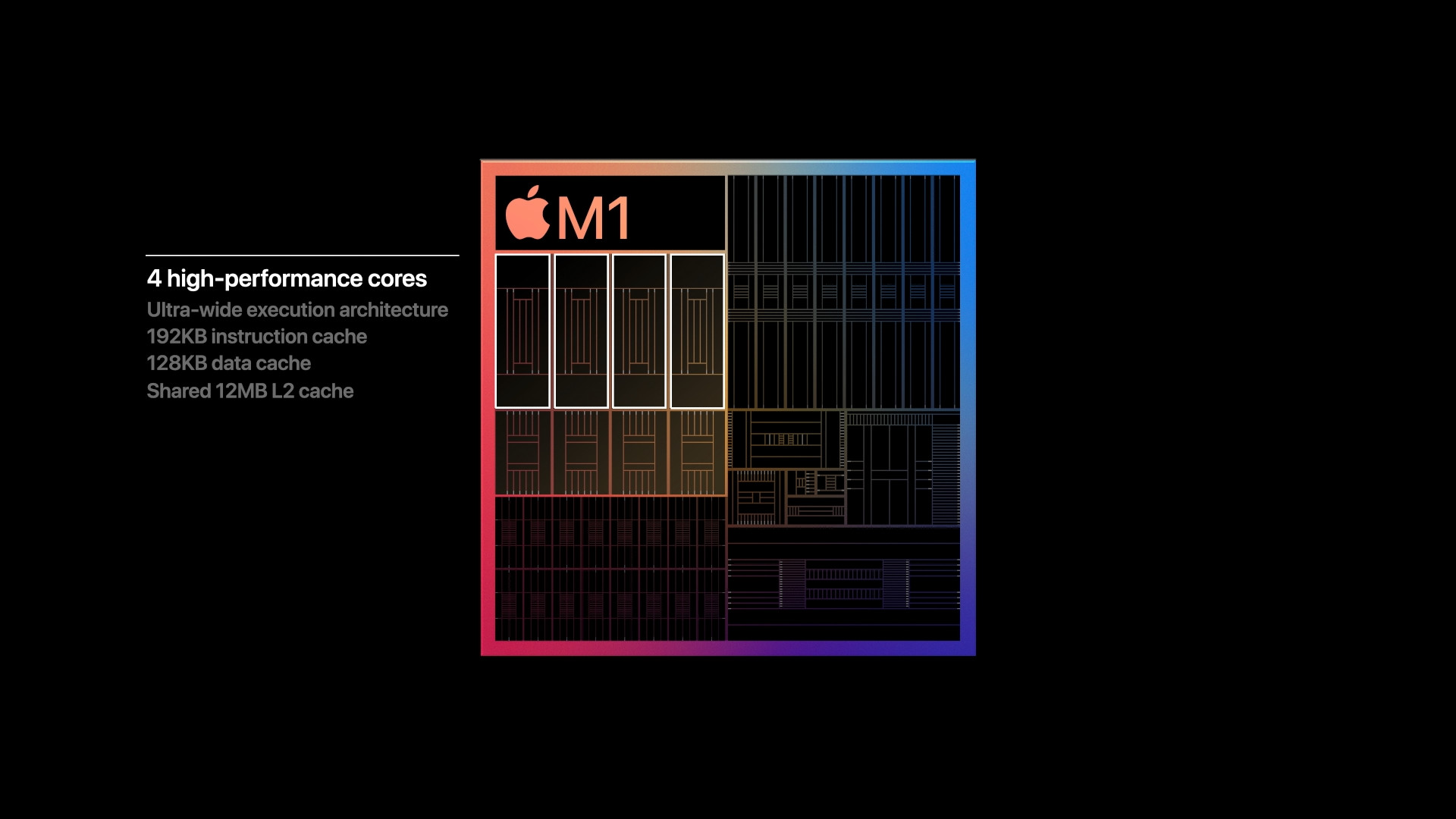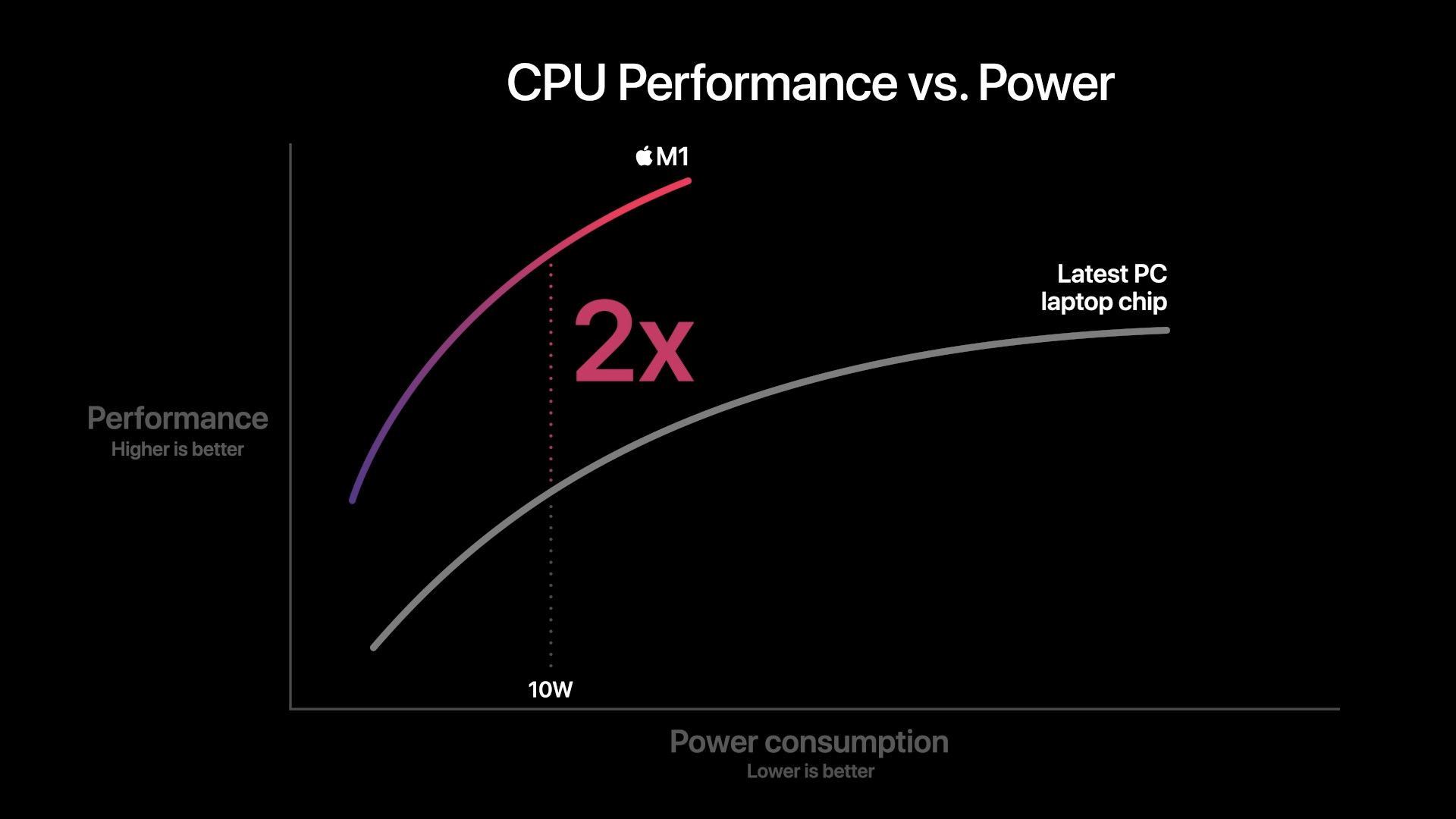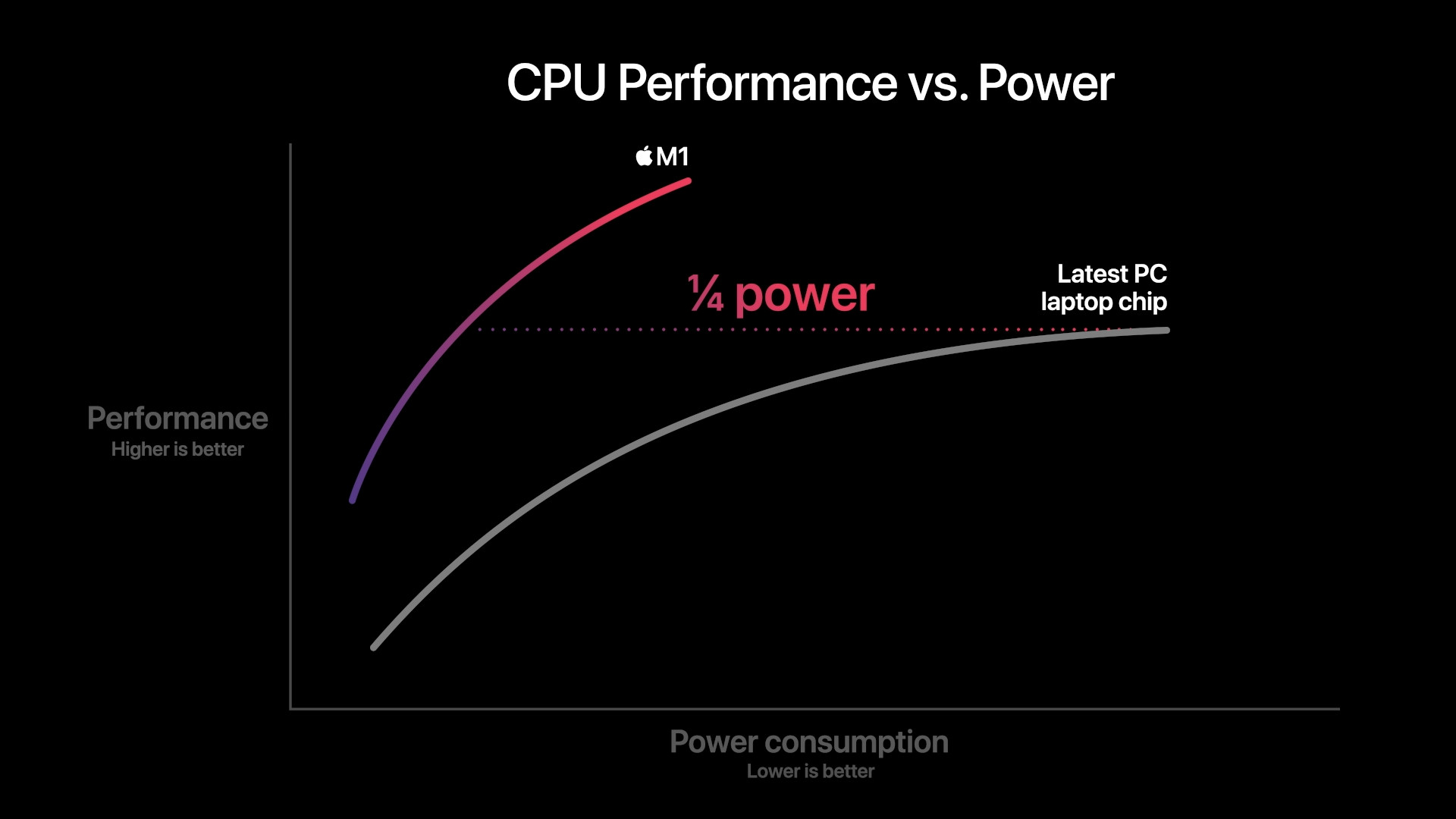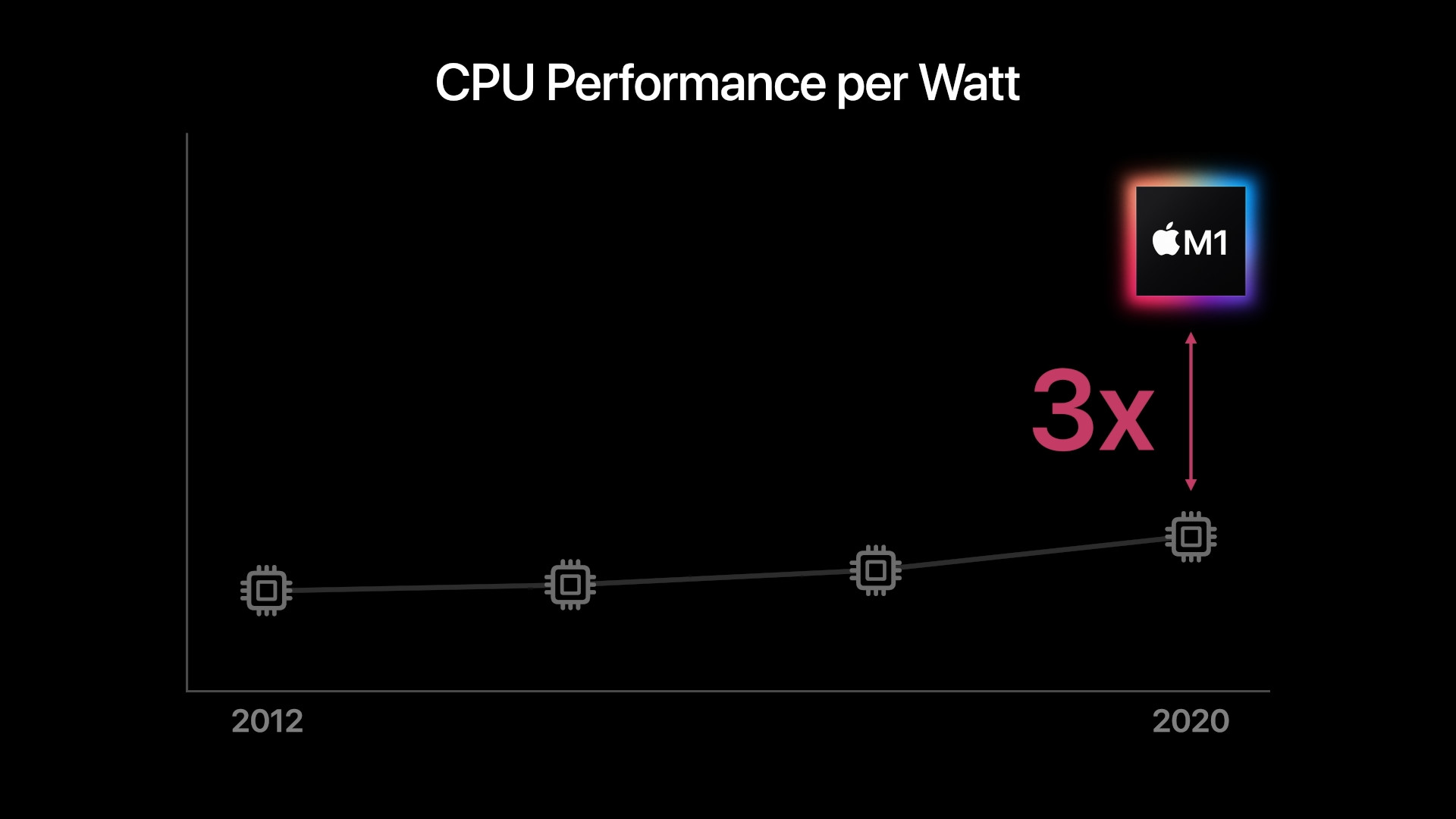On Tuesday, we saw the introduction of the highly anticipated Macs powered by an Apple Silicon chip. During the Keynote itself, the Californian giant did not spare praise and called its M1 chip the best ever. Unfortunately, we did not get to see any specific numbers, and therefore the "brutal performance" of the new Apple computers raises more questions. Today, however, the first benchmark tests appeared on the Internet, which more or less confirm Apple's praise.
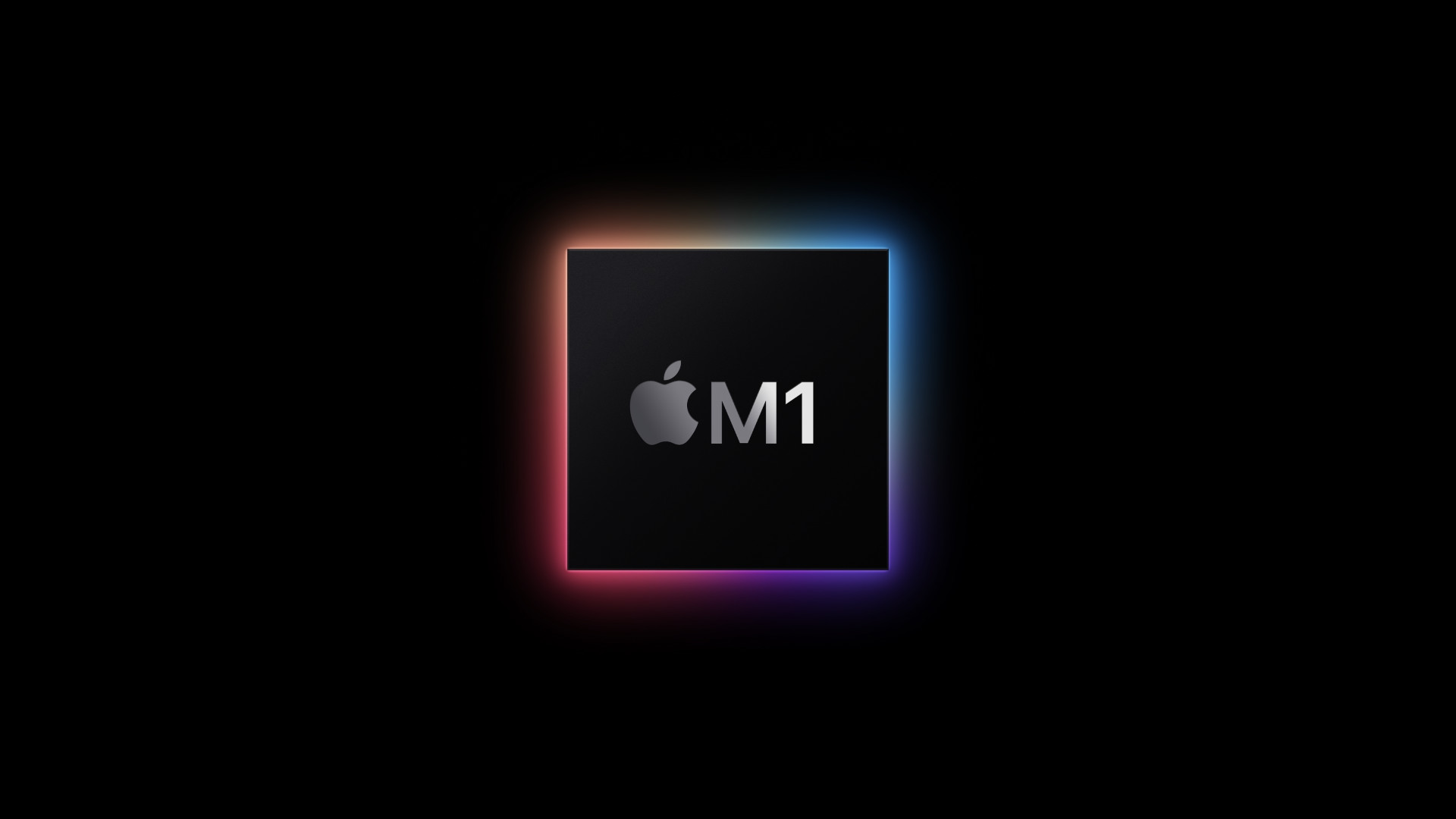
The results themselves appeared on the Geekbench 5 platform. Thanks to this, we have at least some data that shows these new pieces compared to the competition. In this case, the spotlight falls primarily on the new MacBook Air, which does not even have a fan. This piece was able to get 1687 points in the single-core test and 7433 points in the multi-core test. According to data from the Geekbench database, the laptop should run at a clock frequency of 3,20 GHz. When we compare the results of the Air with the most powerful Apple device to date (according to the Geekbench platform), which is the September iPad Air with the Apple A14 chip, we see the first increase in performance. In the test, the tablet scored 1585 points for one core and 4647 points for multiple cores.
However, we will encounter somewhat crazier data when we put the aforementioned MacBook Air with an M1 chip next to a 16″ MacBook Pro in the top configuration with a 9th generation Intel Core i10 processor with a frequency of 2,4 GHz from 2019. As you can see in the attached image , this last year's model scored 1096 points in the single-core test and 6870 points in the multi-core test. Despite the fact that the Air was able to beat even the 16″ Pro model, it can be expected that it would falter in terms of graphics performance.
But we come across more interesting information when looking at Mac mini and MacBook Pro. Although these models offer the same chip, they are also equipped with active cooling in the form of a fan. Precisely because of this, the chip should be able to go to higher temperatures and thus offer better performance, because it is able to cool the higher performance. But the Mac mini scored 1682 points in the single-core test and 7067 points in the multi-core test. In the case of a MacBook Pro with 16GB of operating memory, these are 1714 and 6802 points. You can view all tests from the database <a href="https://cdn.shopify.com/s/files/1/1932/8043/files/200721_ODSTOUPENI_BEZ_UDANI_DUVODU__EN.pdf?v=1595428404" data-gt-href-en="https://en.notsofunnyany.com/">here</a>.
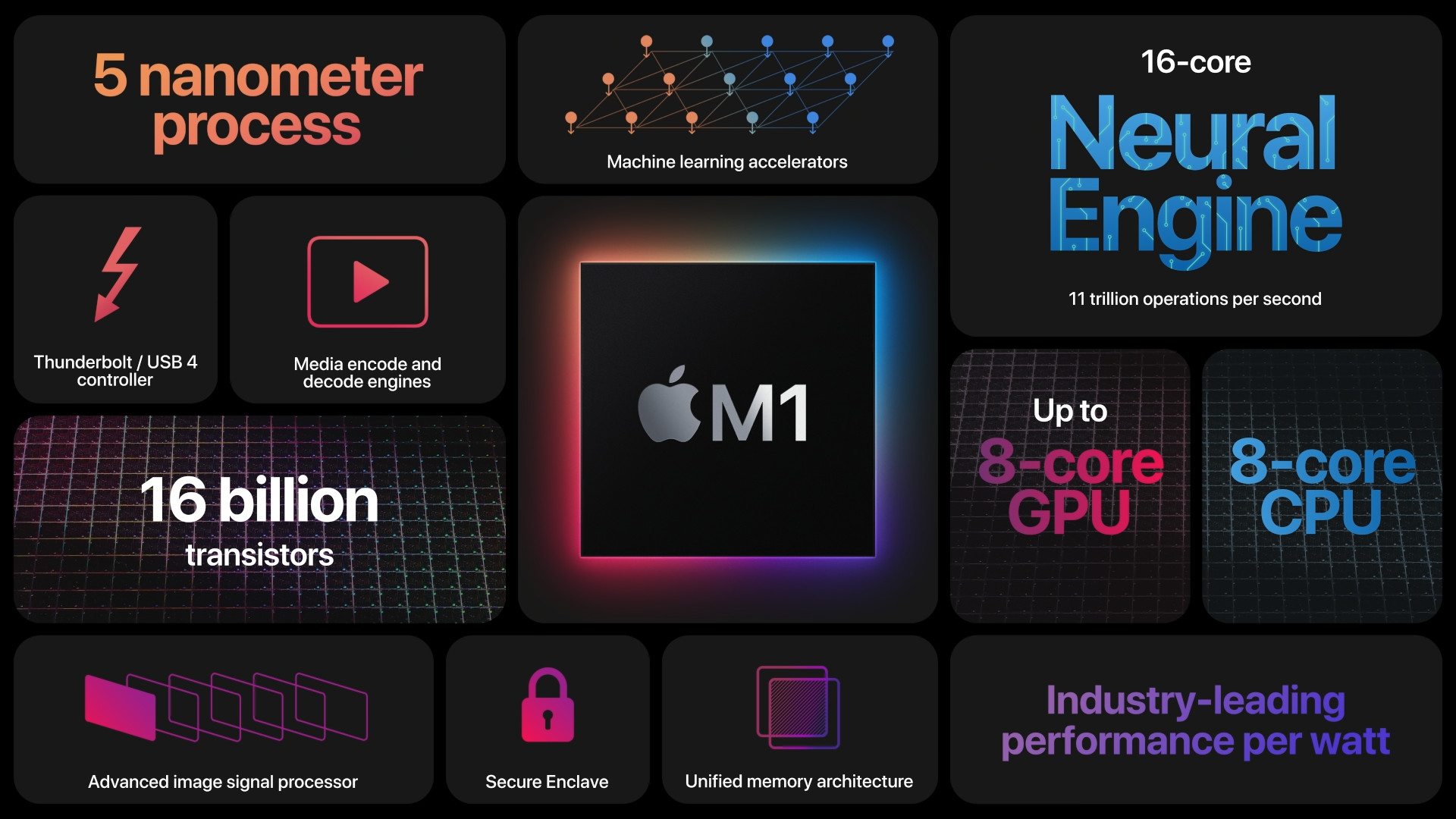
Of course, it is necessary to take into account that these are just benchmark tests, which do not have to tell us much about the performance of the machine itself. In addition, Geekbench has recently been heavily criticized for results that in many cases do not correspond to reality. We will therefore have to wait for more accurate information until the new Macs get into the hands of the first foreign reviewers. Do you believe in the transition to the Apple Silicon platform, or do you think this is a step backwards?
It could be interest you
